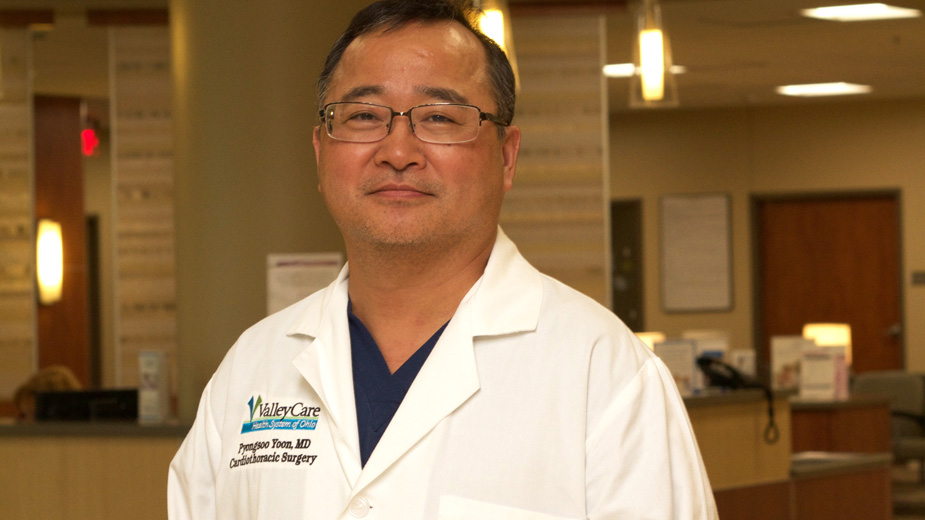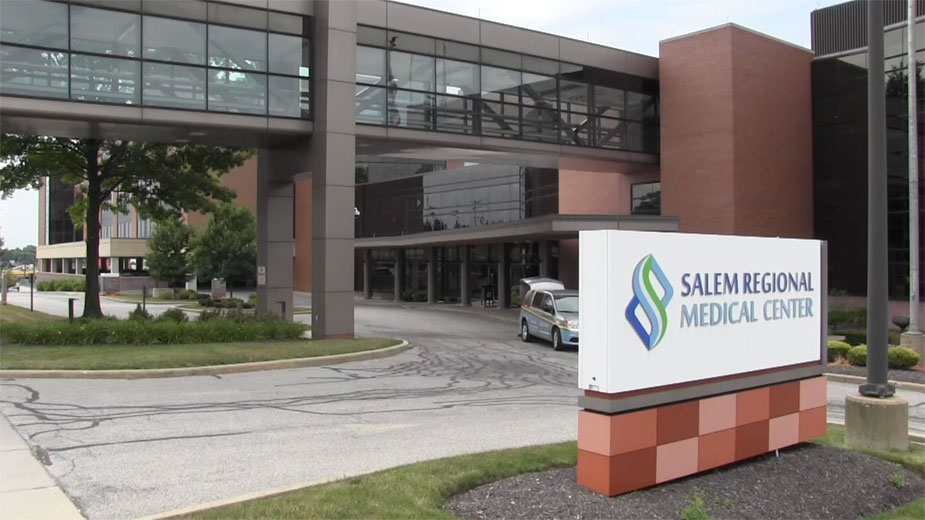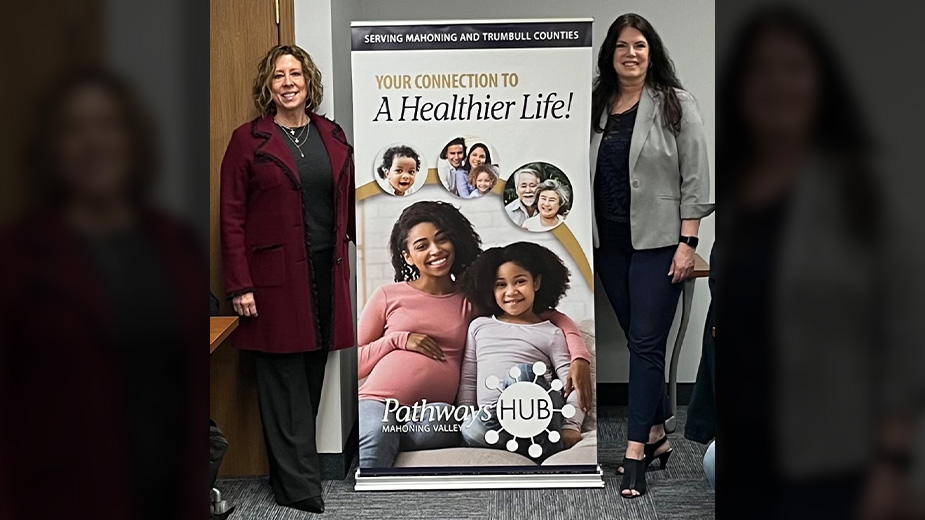Valley’s Aging Population Challenges Cardiac Surgeons
YOUNGSTOWN, Ohio – Coronary bypass surgeries are falling but valve surgeries are rising, says the director of cardiac surgery at ValleyCare Health System of Ohio.
“Back in the ’90s, we were doing a lot of coronary artery bypass surgeries,” a trend that has shifted in recent years, reports Dr. Pyongsoo David Yoon, a cardiac surgeon since 1992.
ValleyCare has nine cardiologists at Northside Medical Center in Youngstown and five at Trumbull Memorial Hospital in Warren. Two cardiothoracic and two vascular surgeons operate at both hospitals.
Yoon attributes the decline in coronary bypasses to angioplasty and improved stents. In addition, the medicines used to treat coronary artery disease, such as statins, which control the body’s production of cholesterol, have improved outcomes significantly.
Open surgeries to treat conditions such as aneurysms once required large incisions can be done less invasively with stent grafts and angiography.
“The other thing we do also is minimally invasive valve surgeries, but most of our patients have combined valvular disease with coronary artery disease, so we don’t do as many minimally invasive surgeries as, let’s say for example, the Cleveland Clinic, where they get special referrals for just valvular disease alone,” he says. “When you’re doing two operations in the same setting, you have to have a traditional opening.”
The increase of valve surgeries, Yoon says, is because of the aging of the patient population. “As you get older you have more issues with valve problems. So our valve volume is going up relative to coronary artery disease,” he says.
Something else Yoon has noticed in his practice is that patients are older and sicker. “Back in the ’80s, we wouldn’t think of doing open heart surgery on patients who are in their 80s,” he says. Now, many residents of the Mahoning Valley live into their 80s and 90s and lead active lives.
“It’s not just chronological age that we look at. We look at the physiological age, but patients are definitely getting older and also sicker because they live longer and there are more medical problems,” Yoon says. “But modern medicine is able to keep them healthier and living longer. So as a result, heart surgery patients become much more complex.”
ValleyCare has begun planning to add transcatheter aortic valve replacement – TAVR – to the procedures it offers, Yoon says. The procedure, done through a catheter in the groin, is performed on high-risk patients who once would not have been candidates for the surgery, he says.
The surgery is now performed in hospitals in Cleveland and Pittsburgh, and he anticipates ValleyCare will add it in a year or two.
Age comes into play in particular with women, who are more likely to be older when they come forward with heart problems. That automatically puts them at “a higher risk of bad things happening,” remarks Dr. Suzanne Lutton, a physician with ValleyCare Medical Group of Ohio and a member of the medical staff at Northside.
Lutton is board certified in cardiovascular disease, advanced heart failure and transplant cardiology, and internal medicine. She is one of the 2016 Cardiac Award recipients who later this month will be recognized at the American Heart Association’s Heart Ball.
Women’s symptoms tend to be milder so they won’t present themselves for evaluation, Lutton
says.
“They can mistake them for other things,” she continues. Often their symptoms aren’t the “crushing, severe” kind that most men have. If they experience chest discomfort, they dismiss it as gas or indigestion. Shortness of breath is written off as fatigue. “Unfortunately, everybody’s fatigued,” she says. Jaw and neck discomfort might be attributed to arthritis.
“Once women are within the system and in the [emergency department] and being seen by cardiologists, their biggest issue is just first coming in,” she says. “The fear is that women aren’t treated as aggressively as men and that’s not the case. Women get [cathetered] as much as men do. They get cared for as aggressively once they’re present.”
Awareness is increasing of the risks and symptoms of heart problems, particularly in younger patients “who are more likely to question what’s going on “ and look up their symptoms on the Internet.
“People Google everything, for better or worse,” she acknowledges. “I have people that I’ve banned from the Internet. But I’ve had some people come up with the right diagnosis.” The problem for women in their 70s and 80s is they tend not to conduct such research. “So they’re relying on family and friends to tell them [they] need to get seen,” she says.
Among the general population, nationally as well as locally, obesity remains a major issue, she says. “So even though we’re making all this progress with medical care, people need to do more before they become a patient, do more to prevent disease” by watching what they eat and engaging in regular exercise, she stresses.
Many older patients tell her they have no safe place to walk, “so safety is an issue, especially for 70- and 80-year-old people,” Lutton says. “We encourage them to go to a gym or mall, but those individuals may have transportation issues as well.”
Pictured: Dr. Pyongsoo David Yoon, a cardiac surgeon at Northside Medical Center.
Copyright 2024 The Business Journal, Youngstown, Ohio.


